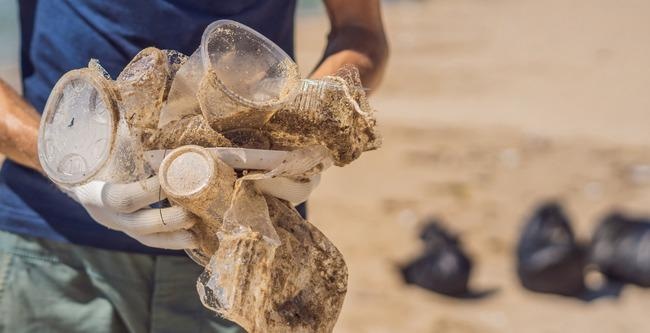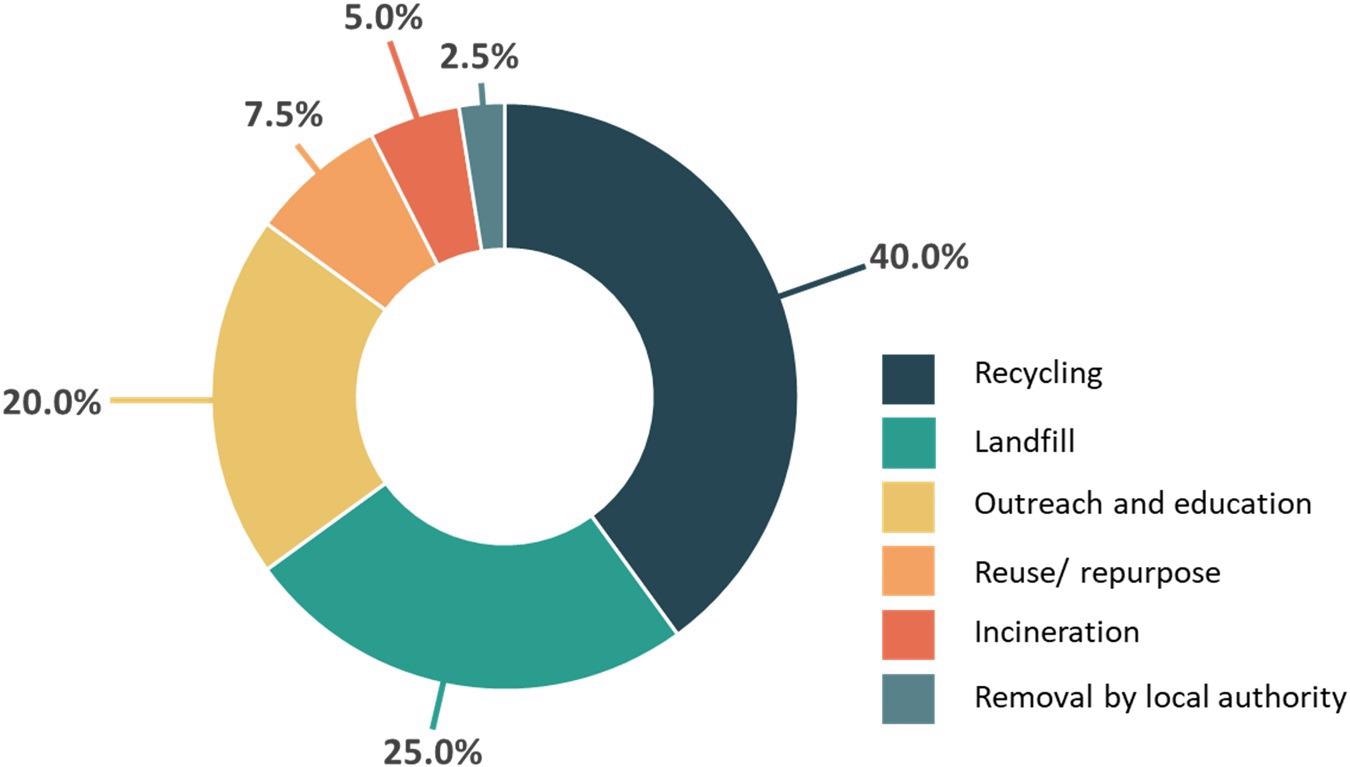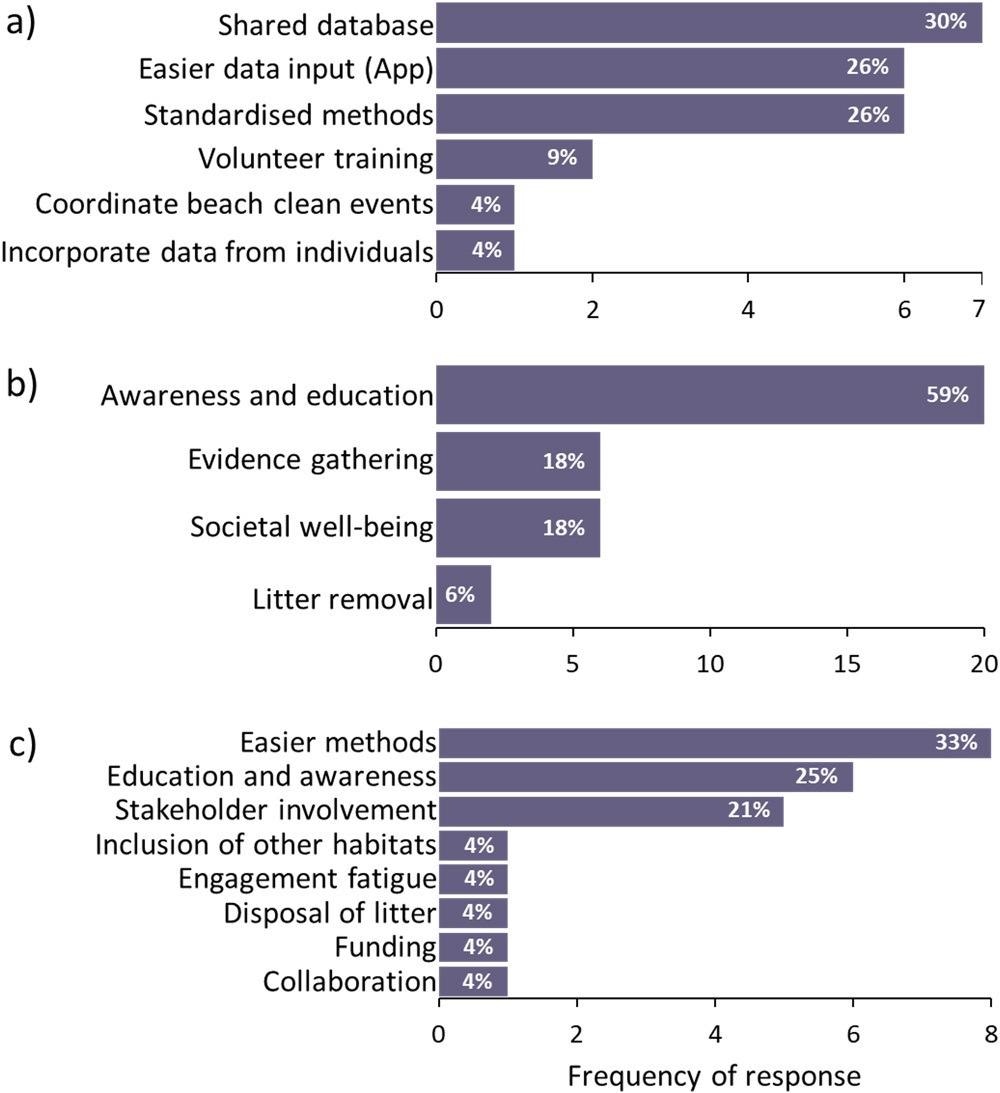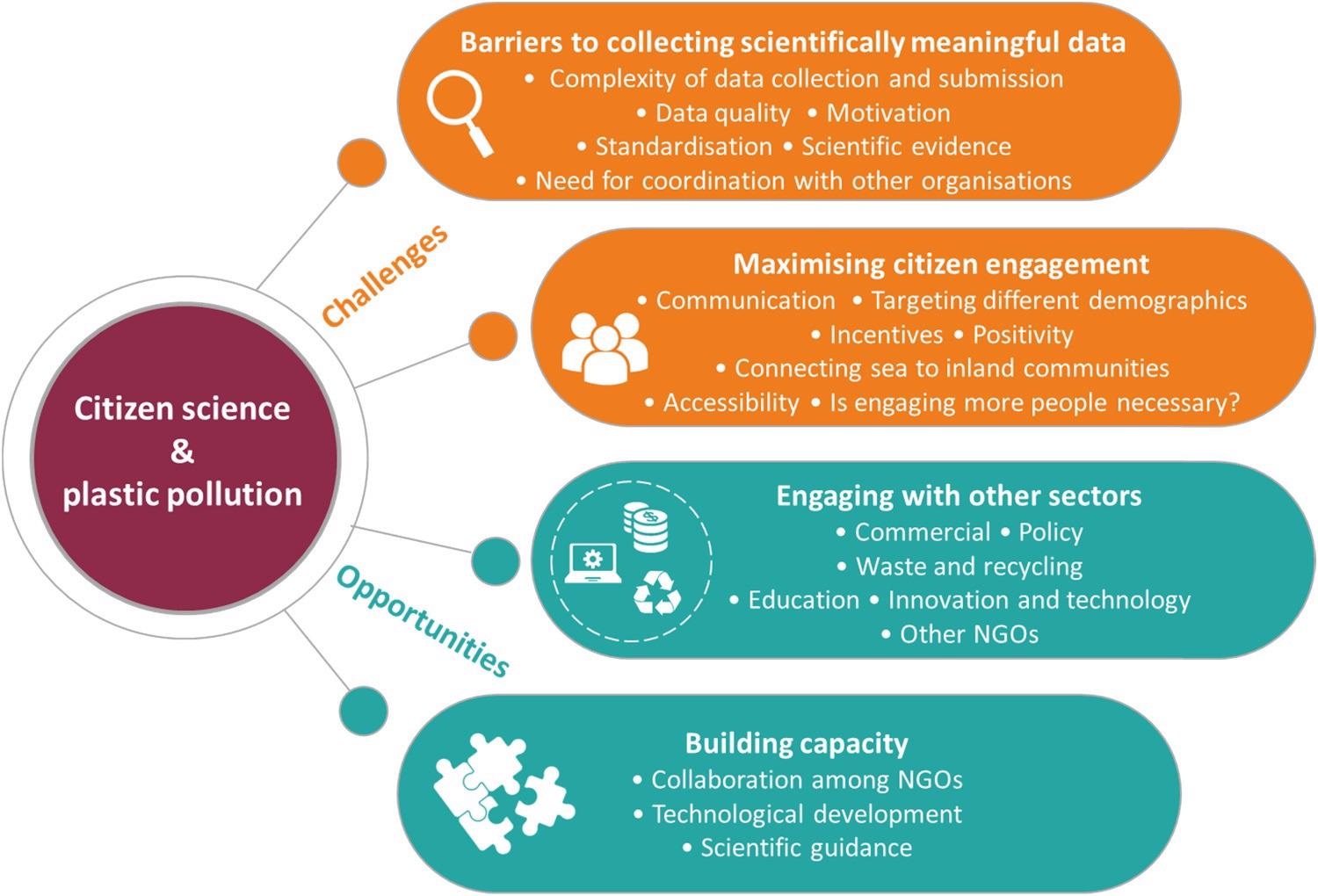In an effort to limit the quantity of plastic pollution in the environment, the number of citizen science clean-up programs, such as beach clean-ups, has expanded globally. Such operations provide a chance to collect valuable information about plastic quantity, distribution, and composition about the citizen cleaning data, according to the Environmental Science and Policy Journal.

Study: The role of citizen science in addressing plastic pollution: Challenges and opportunities. Image Credit: Elizaveta Galitckaia/Shutterstock.com
This data is critical for developing effective management strategies targeted at minimizing input, but little research has been done to look at the issues that existing citizen science programs confront, as well as the possible prospects for maximizing their impact.

Doughnut plot showing the methods organizations use to dispose of litter collected during beach cleans based on the number of questionnaire responses for each method. Image Credit: Nelms, S., et al., Environmental Science and Policy
Science Clean-ups Projects
The popularity of community science clean-up projects, such as beach clean-ups, is growing internationally in an effort to reduce the amount of plastic waste in the environment. Such activities allow for the collection of useful information regarding the quantity, distribution, and composition of the plastic.
This information is essential for designing effective management methods aimed at reducing input, but few studies have been conducted to examine the challenges that existing citizen science initiatives face, as well as the potential for enhancing their effectiveness.
Clean-up efforts, including such beach clean-ups, remove considerable amounts of trash from the ecosystem, and the organizations included in this study gather about 3000 metric tons of litter each year. The findings of our questionnaire survey and workshop show that businesses want to engage more closely with garbage and recycling, as well as the commercial sectors, to effectively manage the litter they collect.
Clean-up initiatives have an important role to play in addressing the plastic pollution problem, and collaboration from other sectors would aid progress towards to the waste hierarchy aim of lowering the quantity of garbage entering landfills.
Collaboration with Policy Makers
Beach clean-up organizations want to work with policymakers to figure out how citizen science may best be utilized to gather information on plastic pollution and influence management activities aimed at reducing it. Indeed, if the promise of citizen science data is to be realized, this is a necessary next step.
However, issues regarding data quality, precision, robustness, and accessibility are likely to limit policymakers' use of citizen science data; some might be unaware that it occurs.

Histograms showing questionnaire participant responses when asked (a) how better beach clean data could be gathered and (b) what are the benefits of citizen engagement to the issues of beach litter and plastic pollution and (c) what key issues need to be resolved/discussed to maximize the benefit of citizen engagement to the plastic pollution problem. Image Credit: Nelms, S., et al., Environmental Science and Policy
Some policymakers and ecological regulators only evaluate citizen science outputs once they've been properly analyzed and published in peer-reviewed publications, highlighting the importance of sound scientific methodology and academic connections. Greater collaboration among clean-up organizations, scientific researchers, and policymakers will allow citizen science data to be used more effectively in the future.
Mobile Application to Capture Data
Collaboration between clean-up organizations would be extremely beneficial to both scientific research and trash removal activities in order to improve the potential of citizen science data. For instance, a common database where organizations may pool their litter data would aid in the development of a better knowledge of litter quantity, distribution, and re-accumulation patterns, as well as details on the amount and timing of clean-up actions.
Using a mobile application ('app') to capture data collected during organized clean-up events and by people is one way that may enable entry into a common database.
Apps are popular for science communication because they allow for rapid, simple, and frequent real-time data entry. They can also enhance geographical information accuracy, gather data produced by persons who are not participating in organized activities and increase participation.
There are already a variety of applications available for tracking trash in the environment, some of which have high levels of user participation. Clean-up organizations might create a volume of data that allows data reuse and meta-analyses by a variety of users by combining data through a common recording instrument, such as an app.

Summary of themes identified during workshop discussion relating to four topics within two sessions (challenges and opportunities). Image Credit: Nelms, S., et al., Environmental Science and Policy
This, however, would need some thought as to how all participating organizations might adopt the very same standardized sampling techniques, agree on an information "ownership" approach, retain brand identity, and deal with the data management dilemma.
Nonetheless, establishing and refining open-source data management technology and analytic tools is critical for advancing citizen research, and data sharing and storage are important future issues.
Environmental debris and citizen science, in many respects, are a perfect match for growing research output and expanding knowledge while also bringing social and environmental advantages. Plastic pollution, being a highly visible issue, has sparked widespread popular attention and involvement, resulting in widespread action, and 'science by the people' has the ability to collect massive amounts of data over a wide range of temporal and geographical ranges.
However, it is evident that several obstacles must be solved before citizen science can fully realize its promise in informing our knowledge of plastic contamination. In the future, more collaboration and support from researchers and policymakers will aid in filling in the gaps and maximizing the effect of clean-up organizations and their operations.
Reference
Nelms, S., et al. (2021). The role of citizen science in addressing plastic pollution: Challenges and opportunities. Environmental Science and Policy. https://www.sciencedirect.com/science/article/pii/S1462901121003245?via%3Dihub
Disclaimer: The views expressed here are those of the author expressed in their private capacity and do not necessarily represent the views of AZoM.com Limited T/A AZoNetwork the owner and operator of this website. This disclaimer forms part of the Terms and conditions of use of this website.